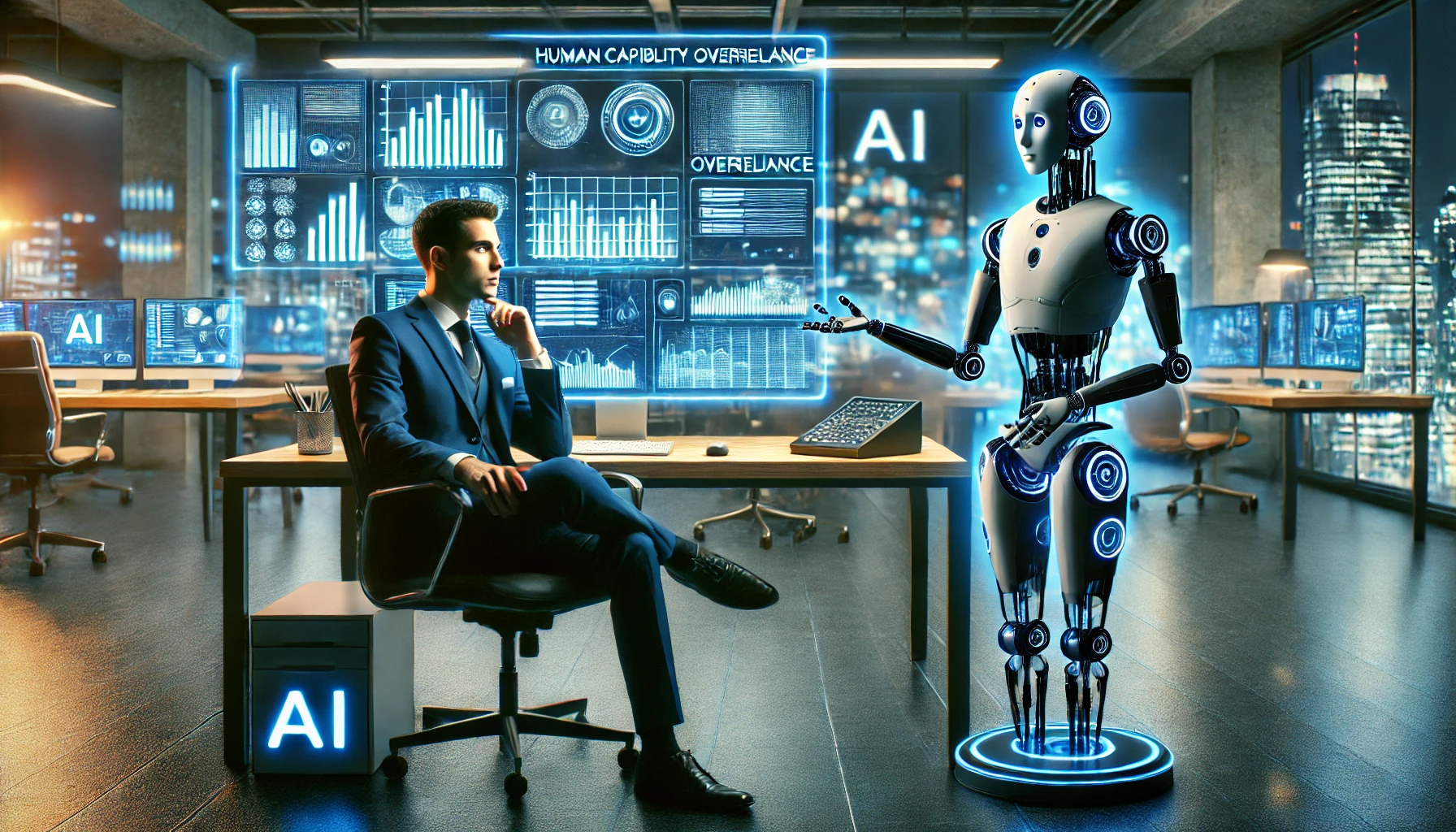- Posted On: 2024-11-09
- Posted By: Shacara
AI: The Hidden Threat to Your Career Potential
Imagine this: You’re in a meeting, and a colleague effortlessly delivers an analysis that would have taken days to prepare just a few years ago. Everyone applauds the efficiency, but few stop to consider the hidden risks. The secret weapon? AI. It’s revolutionizing workplaces, streamlining tasks, and boosting productivity. Yet, beneath the surface, a silent danger looms: the gradual erosion of essential human skills.
The Seductive Pull of Digital Delegation
AI tools have become indispensable in today’s workplace. From drafting emails and summarizing reports to crunching complex data, they promise to take care of tedious tasks, freeing up our time for higher-level thinking. The convenience is undeniable, but it comes with a price: overreliance.
This phenomenon isn’t new. Take mental arithmetic, for instance. Before calculators, professionals could perform complex calculations mentally or with basic tools. Now, even simple math prompts us to reach for our phones. The same trend is unfolding with AI, but on a much larger scale, affecting critical thinking, creativity, and problem-solving.
When Convenience Becomes a Crutch
The danger isn’t in using AI tools—it’s in losing the ability to function without them. Imagine a world where architects can’t draft a basic design without AI, or writers struggle to craft original content without the help of AI assistants. These aren’t distant possibilities; they’re already happening.
Psychologists refer to this as “cognitive offloading,” where we rely on external tools to handle tasks our brains once managed. While this seems efficient, it erodes our mental faculties over time. The more we offload, the less we engage our critical thinking and problem-solving muscles, making us less capable of independent thought.
The Human Edge: Irreplaceable Skills
Despite AI’s impressive capabilities, some skills remain uniquely human. These include:
- Emotional Intelligence: The ability to understand and empathize with others. AI can analyze sentiment, but it can’t truly connect on a human level.
- Critical Thinking: AI can provide data, but interpreting it within nuanced contexts requires human judgment.
- Creativity: AI can generate content, but original, groundbreaking ideas come from human imagination.
- Interpersonal Skills: Negotiation, conflict resolution, and team leadership are areas where humans excel.
The professionals who thrive in the AI era will be those who know how to harness AI’s strengths while maintaining their uniquely human skills. They’ll strike a balance, using AI to enhance their work without becoming dependent on it.
Building AI-Resistant Career Skills
Avoiding AI isn’t the answer; instead, we need to use it strategically. Here’s how to cultivate career skills that withstand AI’s encroachment:
1. Practice Problem-Solving Without AI
Before turning to AI for assistance, challenge yourself to tackle problems independently. Whether it’s writing, analyzing data, or crafting strategies, engaging your cognitive skills helps you stay sharp.
2. Enhance Interpersonal Skills
Empathy, communication, and teamwork are vital in any workplace. AI can’t replicate the human touch in building relationships and fostering collaboration. Regularly seek opportunities to engage with colleagues and clients on a personal level.
3. Refine Judgment Through Experience
AI offers recommendations, but making informed decisions requires experience and context. Use AI as a tool to validate your conclusions rather than as a starting point.
4. Cultivate Creativity
Engage in activities that spark creativity, whether brainstorming sessions, personal projects, or artistic pursuits. Creativity is a skill that AI can support but not replace.
5. Stay Adaptable
The workplace will continue to evolve with AI advancements. Being open to learning new tools and adapting your skills ensures you stay relevant and competitive.
AI as an Ally, Not a Replacement
The rise of AI doesn’t mean the end of human expertise—it means a shift in how we apply it. The key is to view AI as an ally, a powerful tool that enhances our abilities without replacing them. Leaders and employees alike must strike a balance, leveraging AI for efficiency while preserving and developing the human skills that drive innovation and success.
Charting a Path Forward
To thrive in an AI-driven world, professionals need a mindset shift. Success lies in embracing technological advancements while actively honing human skills. Here’s how you can navigate this balance:
- Set Personal Challenges: Regularly take on tasks without AI assistance to keep your mind engaged.
- Invest in Continuous Learning: Stay informed about AI developments while improving your soft skills.
- Foster a Growth-Oriented Team Culture: Encourage your team to use AI strategically while emphasizing skill development.
By maintaining a dual focus on technology and human expertise, you can safeguard your career against the risks of overreliance on AI. Remember, AI is a tool to enhance your capabilities, not a substitute for the unique skills that make you invaluable. In the race toward automation, those who keep their human edge will always lead the pack.









